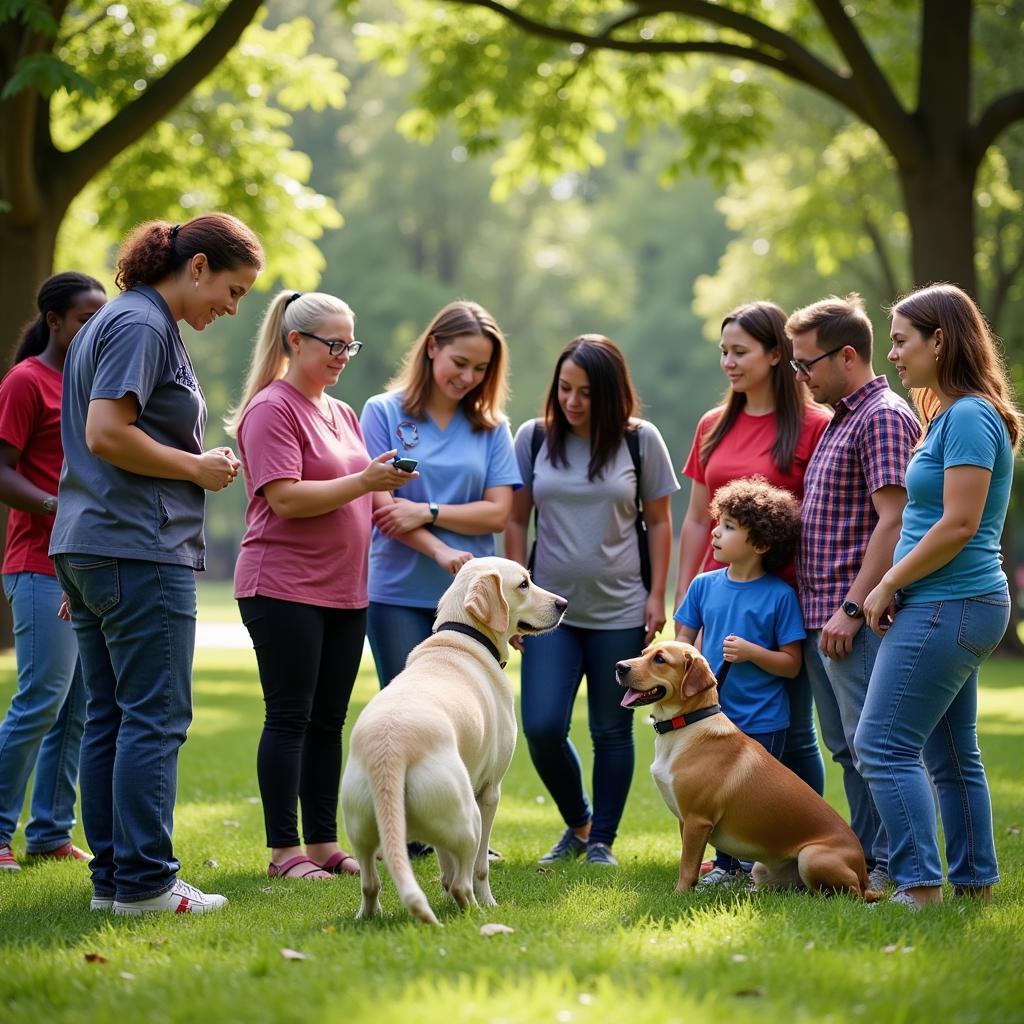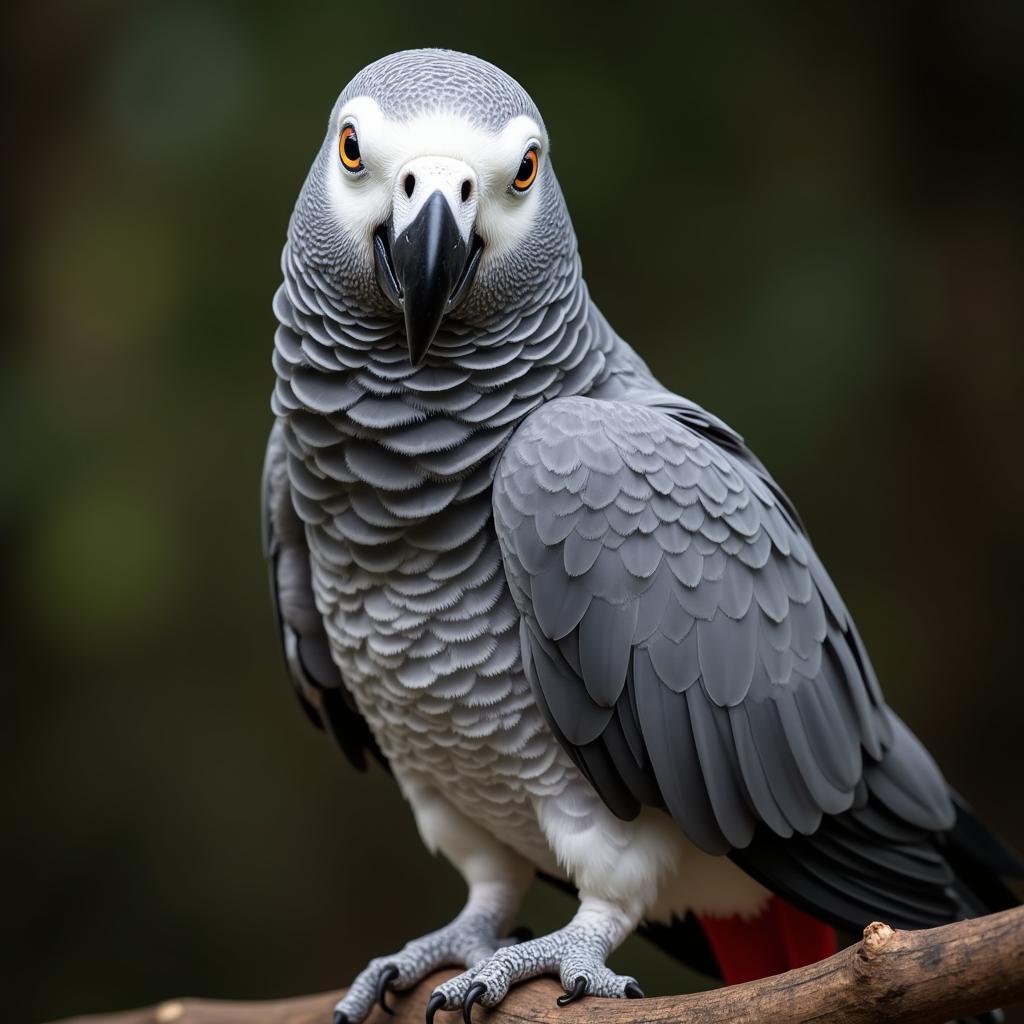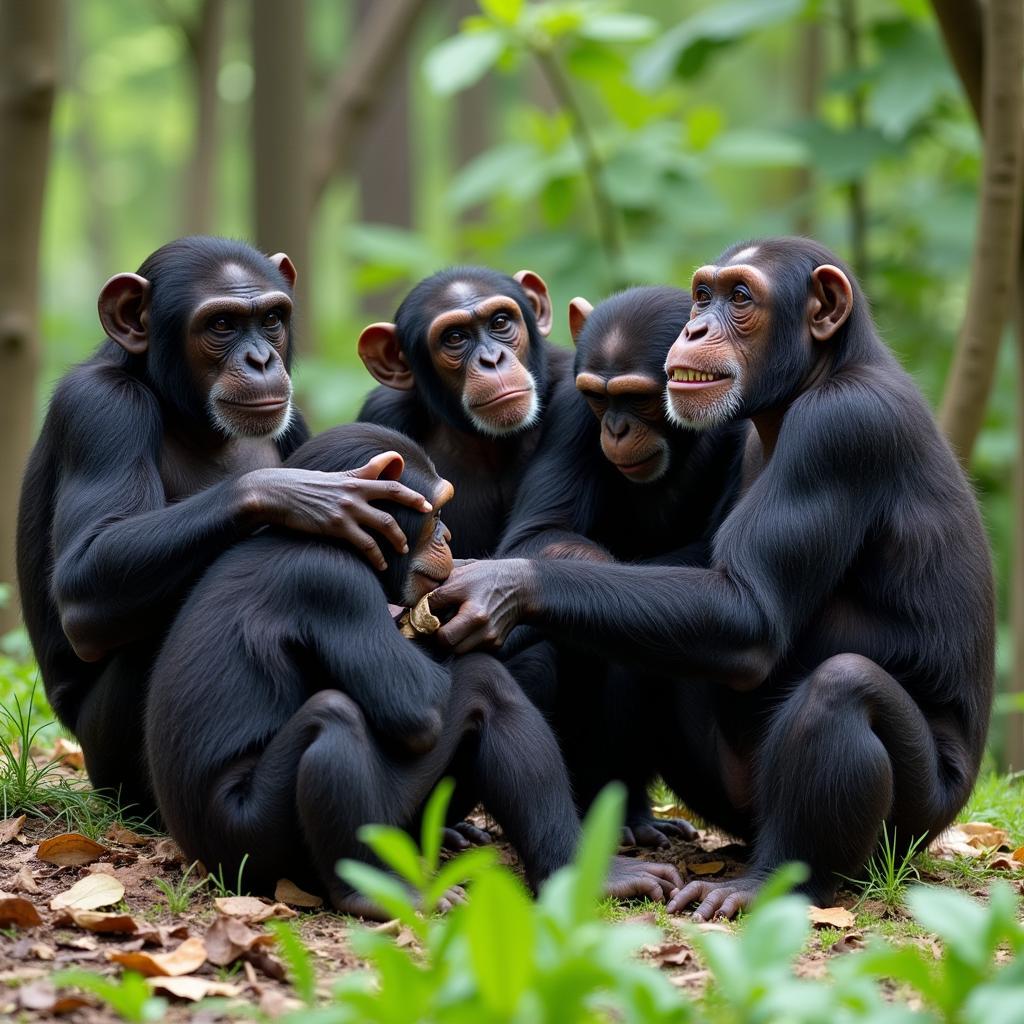Discovering the Rich Tapestry of African Hairstyle Names
African hairstyles are more than just aesthetic choices; they are a powerful expression of culture, heritage, and identity. These intricate styles, passed down through generations, carry stories and traditions unique to various tribes and regions across the continent. Understanding the meaning behind these African Hairstyle Names reveals a deeper connection to the rich history and vibrant traditions of the African people. Let’s embark on a journey to uncover the beauty and symbolism woven into these captivating hairstyles. After reading this, you may want to learn more about a specific african hairstyle name.
Unraveling the Stories Behind African Hairstyle Names
From the arid landscapes of the Sahara to the lush rainforests of the Congo Basin, the diversity of African hairstyles is as vast as the continent itself. Each name reflects a unique story, whether it’s a connection to nature, a social status, or a spiritual belief. For example, the cornrows, a popular style across the continent, symbolize prosperity and order. The intricate patterns often seen in cornrows represent agricultural fields and pathways, reflecting the importance of agriculture in many African communities. Similarly, braids, in various forms and combinations, can indicate a person’s age, marital status, or even clan.
Exploring the etymology of these names reveals the depth of cultural significance. Some names are derived from local languages, reflecting the origins of the style. Others are more descriptive, reflecting the appearance of the hairstyle. This complex interplay of language, culture, and tradition makes studying African hairstyle names a fascinating endeavor. African hairstyles are an art form, a visual language, and a testament to the creativity and ingenuity of African people.
African Hairstyle Names: A Window into Cultural Identity
African hairstyle names are not merely labels; they are cultural markers. They signify belonging, pride, and connection to one’s heritage. In many African communities, hairdressing is a social activity, often performed by family members or close friends, strengthening bonds and transmitting cultural knowledge. The process of creating these hairstyles can be a ritualistic experience, infused with stories, songs, and teachings passed down through generations. This makes the act of hairdressing not just a beauty routine, but a vital part of cultural preservation. For those interested in other cultural aspects, exploring south african girl names can offer further insight.
What are some common African hairstyle names and their meanings?
Some common African hairstyle names include Bantu knots, which symbolize royalty and strength, and Fulani braids, adorned with beads and cowrie shells, reflecting the nomadic heritage of the Fulani people. Amasunzu, a traditional Rwandan hairstyle, indicated a warrior’s status, while the elaborate hairstyles of the Himba people of Namibia reflect their social standing and connection to their ancestors.
The Evolution of African Hairstyle Names
While traditional African hairstyle names remain deeply rooted in cultural significance, they have also evolved over time, influenced by globalization and cultural exchange. Modern interpretations of classic styles have emerged, blending traditional techniques with contemporary aesthetics. This evolution highlights the dynamic nature of African culture, constantly adapting and innovating while staying connected to its rich heritage. Many individuals also explore variations like the african american flat twist updo hairstyles which have emerged as contemporary expressions of this rich tradition.
How have modern influences impacted traditional African hairstyles?
Modern influences have led to the incorporation of new materials and techniques, such as extensions and vibrant hair colors, adding a contemporary twist to traditional styles. This fusion of old and new has created a vibrant and diverse landscape of African hairstyles, reflecting the evolving identities of African people in the 21st century. You might be interested in further exploring african american culture in the 1970s to see these evolving trends.
Celebrating the Beauty and Diversity of African Hairstyle Names
African hairstyle names are a testament to the rich cultural heritage and artistic expression of the African continent. By understanding the stories and symbolism behind these names, we gain a deeper appreciation for the beauty and diversity of African culture. From the intricate braids to the elaborate updos, each style tells a unique story, connecting us to the past and inspiring us for the future. These intricate hair designs serve as a symbol of pride and heritage, reminding us of the powerful influence of African culture worldwide.
In conclusion, African hairstyle names are more than just labels; they are a reflection of history, identity, and cultural pride. They are a testament to the creativity and resilience of African people, and a celebration of the rich tapestry of African traditions. Understanding these names allows us to appreciate the depth and beauty of African culture, connecting us to a vibrant heritage that continues to inspire and evolve.
FAQ
- What are some popular protective African hairstyles?
- How can I learn more about the history of African hairstyles?
- Are there specific hairstyles associated with certain African tribes?
- What are the cultural significance of hair adornments in African hairstyles?
- Where can I find resources for learning how to create different African hairstyles?
- How can I maintain and care for my African hairstyle?
- What are some tips for choosing the right African hairstyle for my hair type?
Need more help? Explore articles about african kids tribe dress kids.
For any further assistance, feel free to contact us. Call us at +255768904061, email us at kaka.mag@gmail.com, or visit our office at Mbarali DC Mawindi, Kangaga, Tanzania. We have a 24/7 customer service team available to assist you.




